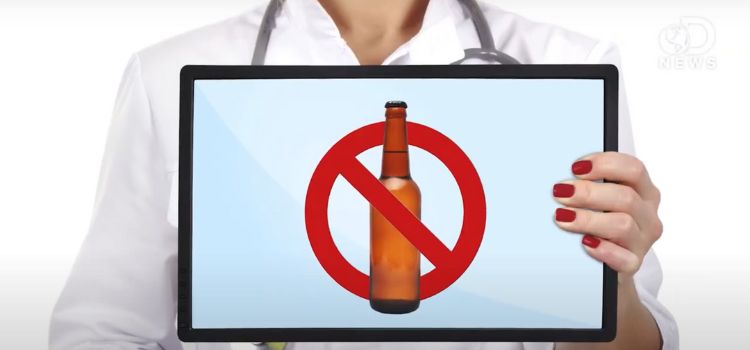No, whisky cannot terminate pregnancy. Whisky does not have any proven abortifacient effects.

Whisky consumption during pregnancy can be harmful to the developing fetus due to its high alcohol content. It can lead to fetal alcohol spectrum disorders (FASDs), which can cause a range of physical, behavioral, and cognitive impairments.
It is important for pregnant women to avoid consuming alcohol to ensure the health and well-being of their baby. If you have concerns about the potential impact of alcohol on your pregnancy, it is recommended to consult with a healthcare professional for personalized advice and support.
Can Whisky Terminate Pregnancy?
Whisky as a pregnancy termination method is a subject of controversy, but there is no scientific evidence to support its effectiveness. It is important to consult with a healthcare professional regarding safe and reliable options for terminating a pregnancy.
For centuries, various myths and beliefs have circulated regarding the termination of pregnancy. One such controversial myth suggests that whisky, a popular alcoholic beverage, can effectively terminate a pregnancy.
We aim to delve into the origins of this myth, dispel common misconceptions, and explore the beliefs surrounding whisky-induced abortion.
The Origins Of The Myth
Whisky, as a potent alcoholic drink, is believed to have historically been associated with medicinal properties and the alleviation of various ailments. This belief may have led to the misconception that it has the power to terminate pregnancy.
The lack of access to safe and legal abortion methods in the past may have prompted women to seek alternative solutions, such as turning to substances like whisky, in desperate attempts to terminate their pregnancies.
Cultural and societal influences, coupled with the limited availability of accurate scientific information, could contribute to the perpetuation of this myth over time.
Common Misconceptions
It is vital to clarify that whisky, or any other alcoholic beverage, does not possess the ability to terminate a pregnancy. This myth is not backed by scientific evidence or medical research.
Drinking alcohol during pregnancy can have harmful effects on fetal development and can lead to a range of complications, including fetal alcohol spectrum disorders. However, these effects are primarily related to regular and excessive alcohol consumption throughout pregnancy, rather than a singular incident or specific type of alcohol.
Exploring The Beliefs On Whisky-Induced Abortion
- Beliefs surrounding whisky-induced abortion often stem from misinformation, anecdotal accounts, or cultural practices that have been passed down.
- These beliefs may arise from the notion that the consumption of whisky can cause contractions or uterine stimulation, leading to a potential termination of pregnancy. However, it is important to note that consuming alcohol, including whisky, provides no guarantee of inducing contractions or terminating a pregnancy.
- Relying on unverified methods, such as consuming excessive amounts of alcohol, can pose serious risks to the pregnant individual’s health and may fail to achieve the desired outcome, while potentially causing harm to both the mother and the fetus.
The belief that whisky can terminate pregnancy is a myth that lacks scientific evidence and medical backing. It is crucial to rely on accurate information and consult healthcare professionals for guidance on pregnancy-related matters.
The safety and well-being of both the pregnant individual and the fetus should always be prioritized.
Understanding The Effects Of Alcohol On Pregnancy

Alcohol consumption during pregnancy can have severe consequences on the health and development of the unborn child. It is crucial for expectant mothers to understand the impact of alcohol and the potential risks involved.
In this section, we will delve into the effects of alcohol on fetal development, the associated risks and complications, as well as the guidelines and recommendations for pregnant women.
The Impact Of Alcohol On Fetal Development
Alcohol can disrupt the normal progression of fetal development, leading to various physical, behavioral, and cognitive issues. Here are the key points to consider:
- Brain development: Alcohol can impede the proper growth of the baby’s brain, potentially resulting in lifelong neurological problems.
- Facial abnormalities: Prenatal exposure to alcohol may cause facial deformities, such as a thin upper lip and abnormalities in the shape and positioning of the eyes.
- Growth restrictions: Alcohol consumption can lead to poor fetal growth, resulting in low birth weight and height.
- Organ damage: The vital organs, including the heart, liver, and kidneys, can be negatively affected by alcohol exposure in the womb.
- Cognitive impairments: Children exposed to alcohol during pregnancy might experience learning difficulties, memory problems, and reduced intellectual capabilities.
Risks And Potential Complications
Alcohol consumption during pregnancy poses various risks and complications. Let’s explore these factors:
- Miscarriage: Heavy alcohol intake increases the risk of miscarriage, potentially causing devastating emotional and physical consequences.
- Premature birth: The consumption of alcohol may increase the likelihood of premature labor, leading to potential health issues for the newborn.
- Fetal Alcohol Spectrum Disorders (FASDs): Prenatal alcohol exposure can result in FASDs, a range of conditions that cause physical, behavioral, and learning difficulties in children.
- Alcohol-related neurodevelopmental disorder (ARND): This disorder can manifest as problems with attention, hyperactivity, and impaired social skills, impacting a child’s ability to function effectively.
Guidelines And Recommendations For Pregnant Women
To protect the wellbeing of the developing fetus, pregnant women should adhere to the following guidelines and recommendations:
- Avoid alcohol entirely: The safest approach is to abstain from alcohol during pregnancy to eliminate any risk of harm.
- Seek support: It can be challenging to abstain from alcohol, so seeking support from healthcare professionals or support groups can be beneficial.
- Plan and prepare: Informing friends and family about your decision to avoid alcohol during pregnancy can help create a supportive environment.
- Stay informed: Stay up-to-date on the latest information regarding alcohol and pregnancy to make informed decisions.
Debunking The Whisky Termination Myth With Scientific Evidence
Scientific evidence debunks the myth that whisky can terminate pregnancy, offering reassurance to those concerned. Studies disprove any correlation, emphasizing the importance of accurate information.
This widely spread myth has been a topic of concern and confusion for many. We will delve into the research, scientific evidence, expert opinions, and medical consensus surrounding the use of alcohol, particularly whisky, in pregnancy termination.
Let’s debunk this myth once and for all.
Research And Studies On Alcohol And Pregnancy Termination
According to numerous scientific studies, consuming alcohol during pregnancy can have severe negative effects on the developing fetus. However, there is no scientific evidence supporting the claim that whisky can terminate a pregnancy.
Research indicates that heavy alcohol consumption during pregnancy can lead to various complications, including fetal alcohol syndrome (FAS), developmental delays, low birth weight, and an increased risk of miscarriage.
While moderate alcohol consumption has been a topic of debate, the safest approach is to avoid alcohol entirely during pregnancy to ensure the well-being of both the mother and the unborn child.
It is important to note that there are approved and legal medical procedures, such as abortion, that should be sought if a woman wishes to terminate an unwanted pregnancy. Relying on harmful substances like whisky is not only ineffective but also dangerous to the mother’s health.
The Truth Behind The Myth
The claim that whisky can terminate a pregnancy is not based on any scientific evidence or medical research. It is purely a myth that circulates through misinformation and lack of proper understanding.
Some people might associate the use of alcohol as a method of inducing abortion due to its potential to cause harm during pregnancy. However, this is not a safe or reliable method and should never be considered as an option.
Whisky, like any alcoholic beverage, poses significant risks to both the pregnant woman and the unborn child. It is essential to prioritize the health and well-being of the mother and seek proper medical advice in case of an unwanted pregnancy.
Expert Opinions And Medical Consensus
Medical experts unanimously discourage the consumption of alcohol during pregnancy. The risks associated with alcohol consumption, including whisky, are well-documented and supported by extensive research.
Organizations such as the American College of Obstetricians and Gynecologists (ACOG), the Centers for Disease Control and Prevention (CDC), and the World Health Organization (WHO) strongly advise women to abstain from alcohol during pregnancy.
Seeking professional guidance from healthcare providers is crucial for making informed decisions regarding pregnancy and termination. It is always recommended to rely on medically approved procedures that prioritize the safety and well-being of both the mother and the unborn child.
Factors To Consider When Assessing Pregnancy Termination Methods

Assessing pregnancy termination methods involves considering various factors. While there are claims about whisky terminating pregnancy, it is important to consult a healthcare professional to understand the safest and most effective options.
With the increasing availability and ease of accessing information online, it’s important to separate fact from fiction and understand the factors to consider when assessing pregnancy termination methods.
In this section, we will discuss how to differentiate between myth and reality, evaluate potential risks and dangers, and emphasize the importance of seeking professional medical advice.
Differentiating Between Myth And Reality
- Not all information found online is accurate or reliable; it is crucial to verify the credibility of sources.
- Misconceptions and myths surrounding pregnancy termination methods can be misleading and potentially harmful.
- Reliable sources such as medical professionals, reputable healthcare websites, and scientific studies should be consulted for accurate information.
- Myths and rumors should be debunked using evidence-based research and expert opinions.
Evaluation Of Potential Risks And Dangers
- Pregnancy termination methods vary in their safety and effectiveness.
- Surgical procedures such as aspiration or dilation and curettage (D&C) are commonly performed in a clinical setting and carry minimal risks when conducted by trained professionals.
- The use of medications for pregnancy termination may have side effects and risks associated with them, which should be discussed with a healthcare provider.
- Self-induced methods or home remedies are highly dangerous and strongly discouraged as they can lead to severe complications and harm the woman’s health.
The Importance Of Seeking Professional Medical Advice
- Every woman’s situation is unique, and it is essential to consult with a healthcare provider to determine the most suitable pregnancy termination method.
- Healthcare professionals have the necessary expertise and knowledge to provide accurate information and guidance throughout the process.
- Seeking professional medical advice ensures the well-being and safety of the woman, minimizing the risks associated with termination methods.
- Timely consultation allows for proper assessment, counseling, and post-termination care, contributing to physical and emotional recovery.
Remember, when it comes to pregnancy termination methods, it is crucial to rely on accurate information, consult healthcare professionals, and prioritize safety and well-being. By evaluating the risks, seeking expert advice, and dispelling myths, you can make informed decisions that prioritize your reproductive health.
Exploring Safe And Reliable Pregnancy Termination Options
Whisky has long been associated with various myths and legends, and one such myth suggests that it can be used as a home remedy to terminate pregnancy. However, it is important to separate fact from fiction when it comes to making decisions about pregnancy termination.
This article aims to explore safe and reliable pregnancy termination options, comparing medical procedures to home remedies, while also addressing the legal and ethical implications involved.
Medical Procedures Vs. Home Remedies
Medical procedures:
- Seeking professional medical guidance is crucial when considering pregnancy termination.
- Following a medical assessment, the doctor can recommend one of the safe and effective options available, such as medication abortion or surgical methods.
- Medication abortion involves taking prescribed medications under medical supervision, which induce miscarriage.
- Surgical methods, on the other hand, involve a minor procedure performed by a healthcare professional to remove the pregnancy.
Home remedies:
- It is important to note that home remedies for pregnancy termination are not backed by scientific evidence and can be highly unsafe.
- Substances such as whisky or any other self-administered remedies can have serious health risks, including complications and harm to the mother.
- Relying on unverified methods can lead to ineffective results, putting the mother’s well-being at risk.
Understanding Legal And Ethical Implications
Legal considerations:
- The legality of pregnancy termination varies across countries and regions.
- It is crucial to research and understand the laws and regulations regarding pregnancy termination in your specific jurisdiction.
- Abiding by the legal framework ensures safety and avoids unnecessary legal consequences.
Ethical concerns:
- The decision to terminate a pregnancy can be a deeply personal and emotionally challenging process.
- Understanding your own beliefs and values is an essential part of making an informed choice.
- It is important to consider the potential impact on your physical, mental, and emotional well-being, as well as the support system available to you.
Available Alternatives And Guidance
Counseling and support:
- Seek professional counseling to discuss your options, thoughts, and concerns about pregnancy termination.
- Mental health professionals can provide guidance, support, and help you navigate the decision-making process.
Access to reliable information:
- Educate yourself about pregnancy termination through reputable sources such as medical professionals, healthcare organizations, and well-established websites.
- Reliable information will enable you to make an informed decision based on accurate medical advice.
Remember, making decisions about pregnancy termination should always prioritize safety, legality, and personal well-being. It is crucial to consult with healthcare professionals who can provide proper guidance and support throughout the process.
Seeking Accurate Information And Support

Discover the importance of seeking accurate information and support when it comes to sensitive topics like using whisky to terminate pregnancy. Educate yourself and connect with trusted resources for guidance. Trustworthy information is key in making informed decisions.
Reliable Sources For Pregnancy-Related Inquiries
- Trusted medical websites: Websites such as Mayo Clinic, WebMD, and the American Pregnancy Association provide accurate and up-to-date information on various pregnancy topics, including termination options.
- Government health agencies: Official websites of government health agencies like the Centers for Disease Control and Prevention (CDC) and the National Institutes of Health (NIH) offer reliable information on pregnancy, including discussions on termination methods.
- Obstetricians and gynecologists: Consulting healthcare professionals who specialize in women’s reproductive health is essential for gaining accurate information and guidance on terminating a pregnancy. They can provide personalized advice based on individual circumstances.
Importance Of Consulting Healthcare Professionals
- Expert advice: Healthcare professionals have the knowledge and expertise to assess each individual’s unique situation and provide appropriate advice on pregnancy termination options.
- Personalized care: Consulting a healthcare professional ensures that the decision-making process is tailored to the specific needs and preferences of the individual considering pregnancy termination.
- Medical safety: Healthcare professionals can assist in determining the most suitable and safe method for terminating a pregnancy, taking into account the gestational age and other factors that may impact the procedure.
Accessing Counseling And Support Services
- Non-judgmental counseling: Seeking professional counseling services can offer emotional support and guidance during the decision-making process and in coping with the emotional aspects of terminating a pregnancy.
- Support groups: Connecting with others who have been through similar experiences can provide a sense of community and reassurance, allowing individuals to share their stories and receive support.
- Hotlines and helplines: Several organizations provide helplines staffed by trained professionals who can offer guidance, resources, and a listening ear for those considering or going through a pregnancy termination.
Frequently Asked Questions For Can Whisky Terminate Pregnancy
What Happens If You Drink Whiskey While Pregnant?
Drinking whiskey while pregnant can harm your baby. It may lead to birth defects and developmental problems.
What Happens If You Drink Alcohol At 5 Weeks Pregnant?
Drinking alcohol at 5 weeks pregnant can harm the developing fetus and should be avoided.
What If I Drank Alcohol In The First Month Of Pregnancy?
Drinking alcohol in the first month of pregnancy can potentially harm your baby.
What Happens If You Drink Alcohol Without Knowing You Were Pregnant?
Drinking alcohol without knowing you were pregnant can potentially harm the baby’s development.
Wrapping Up
It is crucial to debunk the myth that whisky can terminate pregnancy. Scientific evidence clearly shows that consuming alcohol during pregnancy can result in serious complications and harm the developing fetus.
While there might be cultural beliefs or historical anecdotes suggesting otherwise, it is essential to prioritize the health and well-being of both the mother and the unborn child. The proven risks associated with alcohol consumption during pregnancy include fetal alcohol syndrome, developmental delays, and lifelong cognitive and behavioral issues.
Medical professionals universally recommend avoiding alcohol entirely during pregnancy for the best possible outcomes. It is important to seek accurate and up-to-date information from reliable sources and consult with healthcare providers regarding any concerns or questions about pregnancy.
Making informed choices and following evidence-based guidelines are critical in ensuring a healthy pregnancy journey for both mother and baby.
Leave a Reply